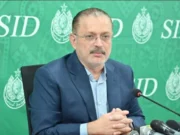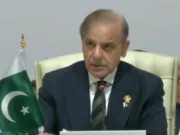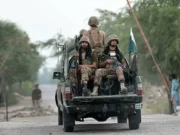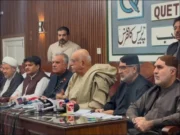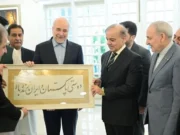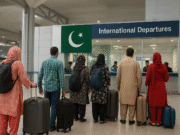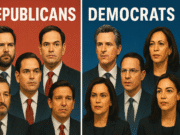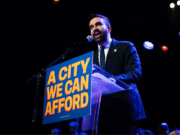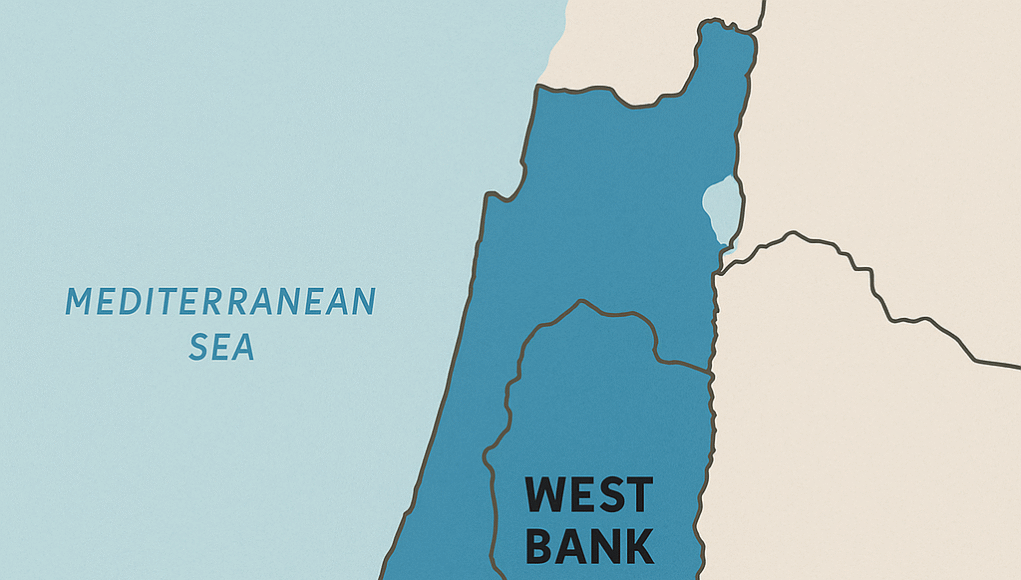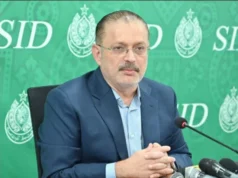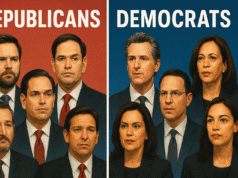By Fayaz Naich | July 28, 2025 | New York City
In a strongly worded statement on Monday, the United States announced it will boycott an upcoming United Nations-hosted conference in New York aimed at advancing a two-state solution to the Israeli- Palestinian conflict. The move comes amid rising international tensions over Washington’s unwavering support for Israel in the ongoing Gaza war, now nearing its second year.
Tammy Bruce, spokesperson for the U.S. State Department, dismissed the conference as “an unproductive and ill-timed publicity stunt,” threatening to prolong the war. “Far from promoting peace, the conference will embolden Hamas and reward its obstruction,” she said. “This effort is a slap in the face to the victims of October 7th and a reward for terrorism.”
The United Nations initiative, backed by several European, African, and Middle Eastern countries, aims to reignite global efforts toward a sovereign Palestinian state alongside Israel. However, the U.S. maintains that such discussions at this moment would undermine delicate backchannel negotiations to free hostages, reach a ceasefire, and chart a durable peace framework.
“As Secretary [of State] Rubio has made clear, our focus remains on serious diplomacy: not stage- managed conferences designed to manufacture the appearance of relevance,” Bruce said, reaffirming the U.S. commitment to a separate diplomatic track.
Opposing Views: Growing International Criticism of Israel’s Conduct. However, a growing number of nations, particularly in the Global South and parts of Europe, reject the U.S. narrative and accuse Israel of acting as the primary aggressor in the conflict. These countries argue that Israeli military operations have gone far beyond self-defense, amounting to disproportionate violence, collective punishment, and systemic violation of international humanitarian law.
South Africa, Brazil, Ireland, Norway, Turkey, and Malaysia have been especially vocal. South African President Cyril Ramaphosa, whose country brought a genocide case against Israel at the International Court of Justice earlier this year, condemned the U.S. boycott of the conference as “a continuation of shielding an occupying power from accountability.”
Turkish President Recep Tayyip Erdoğan accused Israel of “being the greatest threat to peace in the region” and said the UN conference offers a rare opportunity to hold Israel accountable for decades of occupation and expansion. “Peace will never be achieved by ignoring Palestinian rights or by appeasing an apartheid regime,” Erdoğan stated.
Irish Foreign Minister Niall O’Sullivan said, “If we are serious about a just and lasting peace, we must stop pretending that silence or deferral is diplomacy. Israel cannot continue to act with impunity.”
France, Spain, and several other EU member states have recently announced formal steps toward recognizing a Palestinian state. President Emmanuel Macron’s public endorsement of Palestinian statehood was hailed by Arab and Muslim-majority nations but condemned by the U.S. and Israel. Bruce claimed Macron’s move was “welcomed by Hamas” and “undercuts diplomatic efforts to end the suffering in Gaza.”
Background: War, Hostages, and Diplomatic Deadlock
The conflict erupted on October 7, 2023, when Hamas launched a surprise attack on southern Israel, killing over 1,200 people and taking more than 250 hostages. In response, Israel launched an extensive military campaign across Gaza, resulting in tens of thousands of Palestinian casualties and a severe humanitarian crisis. Over 80 hostages are still believed to be held in Gaza’s tunnels.
While the U.S. has prioritized ceasefire talks and hostage negotiations, critics accuse Washington of enabling Israeli military actions that have devastated Gaza’s civilian infrastructure and displaced over two million people.
The divide between Washington and much of the international community underscores the growing polarization over resolving one of the world’s most entrenched conflicts. While the U.S. champions a controlled diplomatic path that includes regional normalization and the disarmament of Hamas, many other nations argue that without immediate recognition of Palestinian sovereignty and accountability for Israeli actions, peace will remain out of reach.
The UN conference is expected to proceed later this week. Over 70 countries are expected to participate, many of which see the two-state solution as the only viable long-term outcome. The U.S. absence, however, casts a long shadow over the forum’s potential to bring meaningful progress in the absence of the region’s most powerful diplomatic player.


